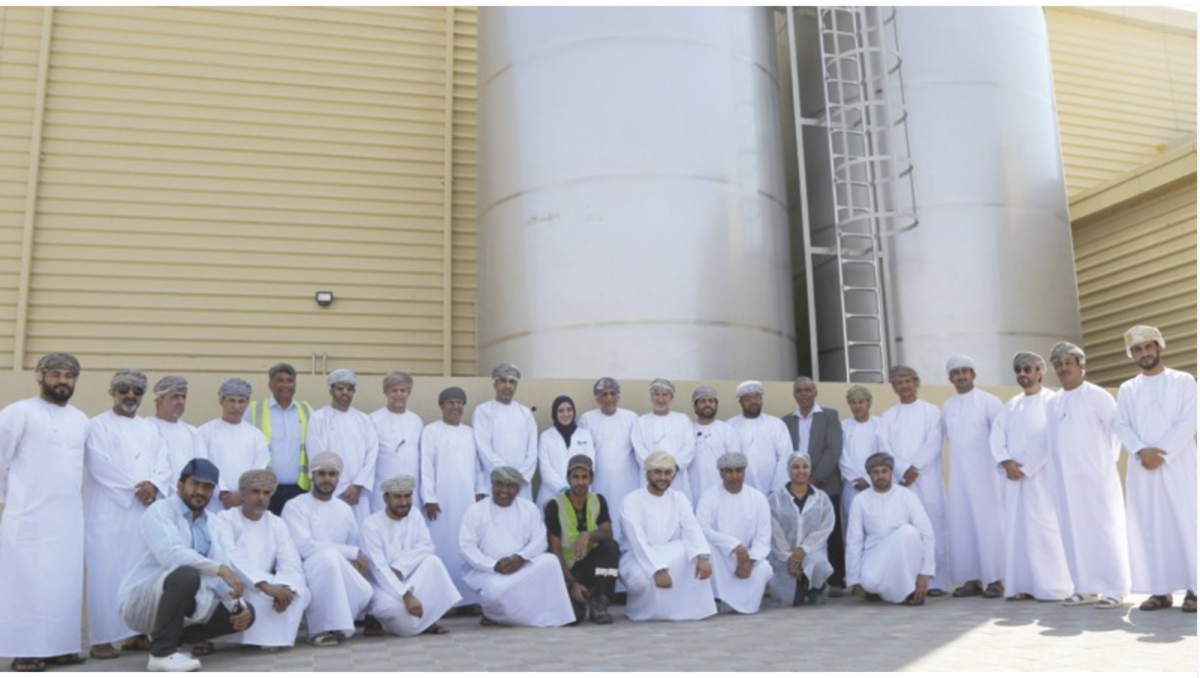Economy
Region’s first biogas plant begins operations in Al Sinainah

First-of-its-kind in the region, Mazoon Diary’s biogas plant has begun operations in Al Sinainah in Oman. The switching-on ceremony for the plant was held under the presence of Dr Hamad bin Said al Aufi, Minister of Agriculture and Fisheries, and the Board of Directors.
The plant, which is part of Mazoon Diary’s strategy to enhance its waste management efficiency by adopting environmentally sustainable solutions, uses waste from cows to produce gas as an alternative source of energy to operate some facilities at the factory.
With this plant, Mazoon Diary has become the first diary company in the region to adopt clean technology on such a big scale to harness sustainable solutions for the diary sector.

Mazoon Dairy has announced that its products will be available in Oman market this month
According to Yousuf bin Khamis al Fazari, Corporate Affairs Manager the company is committed to adopting environmentally friendly solutions through waste management, and proud to be able to open the first biogas plant in the region using cow waste. “The biogas plant will be used to produce methane gas that will be used to operate equipment at the plant, with plans to power even more of the plant with increased herd in the future. The first phase of the project will include 12,000 cows that are expected to produce about 225 tonnes of fertiliser per day,” he added.
Engineer Hazza bin Abdullah al Yahya, a member of projects and maintenance team, explaining the process, said, “The farm currently includes 16 barns equipped with a special pond to collect cow waste, which will be transported through special containers to the biogas plant on a daily basis”
READ: Oman among 10 rising stars of global trade, says Standard Chartered study
According to him, the plant will be able to reduce its dependency on fossil fuel as the number of cows increases and this will expand the plant’s capacity to contribute to waste management and drive up operational efficiency of the plant. The Diary is also planning to tackle other waste management issues such as plastic and water management through recycling of treated water from the sewage plant for irrigation.
In February earlier this year, the Diary marked a significant milestone with arrival of 1,600 cows from Australia to the state-of-the-art dairy farm in Al Sunaynah.
The 15sqkm fully-integrated farm, centralised processing plant and other facilities in Al Sunaynah are expected to meet the market demand for high-quality, fresh dairy products with the Diary announcing that its products would be available in the Oman from this month onwards.
-

 Banking & Finance2 months ago
Banking & Finance2 months agoOman Oil Marketing Company Concludes Its Annual Health, Safety, Environment, and Quality Week, Reaffirming People and Safety as a Top Priority
-

 News2 months ago
News2 months agoJamal Ahmed Al Harthy Honoured as ‘Pioneer in Youth Empowerment through Education and Sport’ at CSR Summit & Awards 2025
-

 OER Magazines2 months ago
OER Magazines2 months agoOER, December 2025
-

 News2 months ago
News2 months agoAI Security Conference 2025 Hosted by Securado Highlights the Changing Cybersecurity Landscape
-

 Insurance1 month ago
Insurance1 month agoSupporting Community Wellness: Liva Insurance Sponsors Muscat Marathon 2026 with Free Health Checkups
-

 Interviews1 month ago
Interviews1 month agoEXCLUSIVE INTERVIEW: TLS Rebranding Marks Strategic Leap Toward Innovation, Sustainability & Growth
-

 Insurance4 weeks ago
Insurance4 weeks agoLiva Insurance Supports Community Wellness Through “Experience Oman – Muscat Marathon 2026”
-

 Banking & Finance4 weeks ago
Banking & Finance4 weeks agoA New Platform for SME Growth: Oman Arab Bank Unveils Tumouhi






























